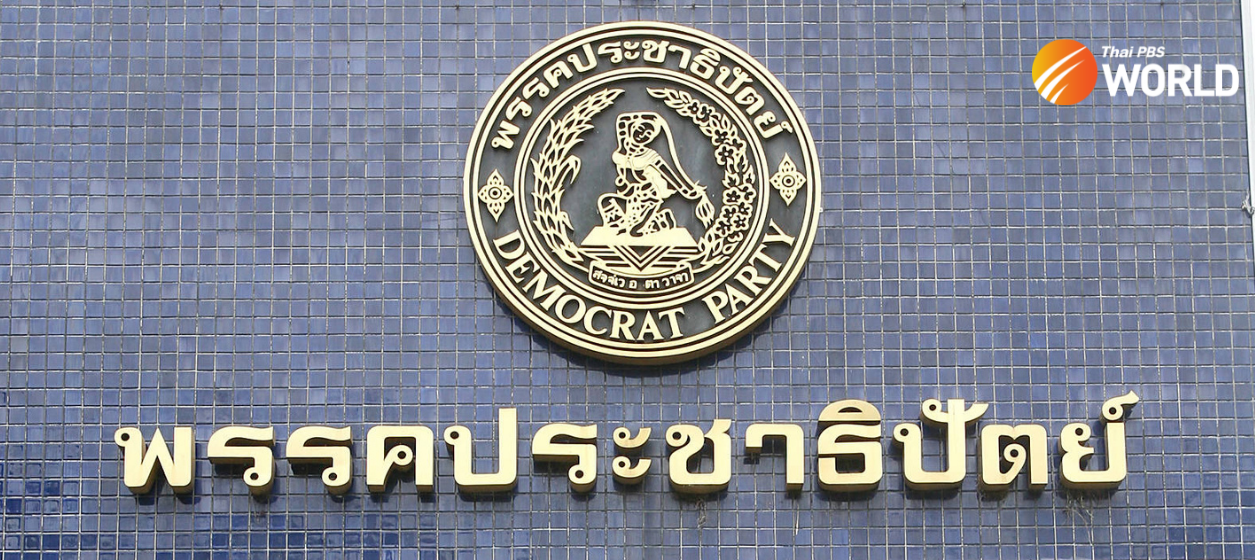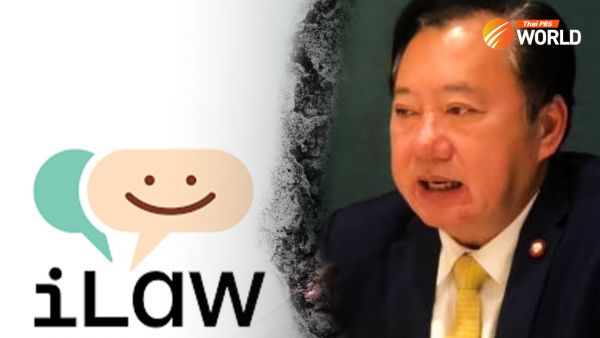Democrats cut ties with their 77-year past: what’s next for Thailand’s oldest party?

The Democrat Party has reached a crucial turning point in its 77-year history, having elected a new leader amid infighting that has sparked an exodus of senior figures.
Chalermchai Srion, acting party leader and secretary-general, was elected uncontested as the new Democrat chief at the party’s general meeting last Saturday (December 9).
His leadership rival Watanya Bunnag failed to get the minimum 75% of votes required to waive the rule that a candidate must have been a party member for at least five years. Watanya only joined the party last year.
Former party leader Abhisit Vejjajiva withdrew from the contest after being unexpectedly nominated by his mentor and ex-leader, Chuan Leekpai. Abhisit would have been aware that his chances were slim, as Chalermchai was backed by 21 of the party’s 25 MPs. Under party rules, Democrat MPs control 70% of the votes and non-MP party members only 30%.
The election of Chalermchai and a new executive board dominated by his faction saw a string of veteran Democrats, led by Abhisit, promptly resign from the party. Some of those who quit, including Sathit Wongnongtoei, said they could not accept Chalermchai’s leadership given he had vowed to quit politics if the party lost seats in the May 14 general election. Its share of MPs fell from 53 to 25.
‘Surviving without growing’
Two questions now haunt the Democrats: How did the country’s oldest party arrive at this juncture; and what lies ahead for this venerable institution that has produced prime ministers, House speakers, opposition leaders, and numerous ministers?
Political observers are not optimistic about the party’s future under its new leadership, predicting it will survive but not thrive. Some forecast the Democrats will become a minor party in future coalition governments, commanding 20 or fewer MP seats.
Olarn Thinbangtieo, a lecturer at Burapha University’s Faculty of Political Science and Law, said the party’s latest crisis means it “will not grow but will not die”.
The Democrats’ fate also serves as a warning of the inflexibility that can take over a political institution, he added.
“My prediction is that the Democrats will become a small party that focuses on negotiating for Cabinet seats in coalition governments. That’s what the Chartthaipattana and Bhumjaithai [parties] did in the past.”
Olarn forecast the party would be dominated by provincial political dynasties and wealthy local politicians, with the potential to win between 10 and 20 MP seats.
“That’s enough to negotiate for ministerial posts. Coalition leaders tend to like it this way because these small parties don’t have much negotiating power.”
Olarn is convinced that the new Democrat leadership will seek to join the current government coalition, observing that there are still Cabinet seats vacant.
The analyst attributed the party’s latest crisis to its strong, rules-based functioning in the place of a dominant figure or “party owner”. As a result, everyone in the party fights fiercely to become the leader, Olarn said, pointing out that the previous leadership contest in 2019 also damaged the Democrats’ image before Jurin Laksanawisit won the top seat.
A long decline
The Democrats have been in decline for the past two decades because they prioritized political games for power over the party’s original principles of democracy and conservatism, according to Olarn.
The decline became obvious, he said, when then-party chief Abhisit secretly formed a Democrat-led coalition government with seasoned political dealmaker Newin Chidchob, who led a mass defection of People Power Party MPs to vote for Abhisit as prime minister.
Olarn also said the Democrats committed more mistakes when they boycotted the general election in 2014, which led to a military coup to oust Yingluck Shinawatra’s government, and then under Jurin’s leadership joined a coalition government led by coup leader General Prayut Chan-o-cha despite vowing not to do so.
The party is no longer able to recruit new members from prominent backgrounds, the analyst added. These days, most key Democrat figures are only popular in their home provinces, including new leader Chalermchai.
Strong competition ahead
The latest change in the party will also see the Democrats struggle to attract votes in future elections in their traditional strongholds of Bangkok and the South, Olarn said.
He doubts the new Democrat leader will appeal to Bangkok voters or salvage the party’s sinking popularity in the capital. The party failed to win any Bangkok seats in the past two general elections.
In the South, the Democrats won 50 or nearly all the seats up for grabs in the 2011 election but saw that number reduced by more than half, to 22 in 2019, and then 17 this year. Olarn said he expects that downward trend to continue amid strong competition from the Bhumjaithai, United Thai Nation, and Move Forward parties.
He predicts Democrat supporters will shift their allegiance to United Thai Nation – which has drawn in many former Democrat politicians – and Bhumjaithai, another key conservative party. These parties serve as the obvious choice for conservative voters who dislike the ruling Pheu Thai party and the opposition’s Move Forward, the analyst said.
Political veteran
Chalermchai was born on March 7, 1965, in Prachuap Khiri Khan province. He received a bachelor’s degree in law from Ramkhamhaeng University and a master’s in Liberal Arts (policy and planning) from Krirk University.
He launched his political career in 1990 when he was elected to the provincial administrative council in his hometown. He became chairman of Prachuap Khiri Khan’s Provincial Administrative Council in 1995, serving until 1997.
Chalermchai entered Parliament for the first time at the age of 36 after being elected to represent his home province. He was re-elected in 2005, 2007, and 2011. However, he failed to get elected in the two previous general elections.
Chalermchai served as labor minister in the Abhisit government between June 2010 and August 2011, and as agriculture minister under General Prayut Chan-o-cha’s administration from July 2019 to September 2023.
He previously served as Democrat deputy leader and secretary general, before assuming the post of acting leader and then finally the top job.
By Thai PBS World’s Political Desk






